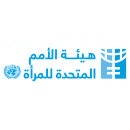Strategic National Protection Plan Development Consultant
Job Description
This job listing expired on 2025-07-01
Browse Latest Jobs
when applying to a job online , never give your
credit card or bank account information,
or perform any sort of monetary transaction to a prospective employer. For your privacy and protection:
Latests Jobs By
UN Women - هيئة الأمم المتحدة للمرأة
Job Title
Date Posted
National Consultant - Project Assistant
Remote Jobs
16, Jul
Consultant - Develop the Palestine’s Third National Action P
Remote Jobs
27, Jun
Information Management Specialist
Gaza Strip, Jerusalem, Ramalla...
21, May
National Capacity building Consultant
Remote Jobs
6, May
Consultant – Women’s Leadership Mapping Resource/Booklet
Remote Jobs
15, Apr
National Capacity building Consultant
Remote Jobs
11, Apr
Communications Associate
Jerusalem, Ramallah
24, Mar
Capacity Building Consultant
Remote Jobs
22, Mar






